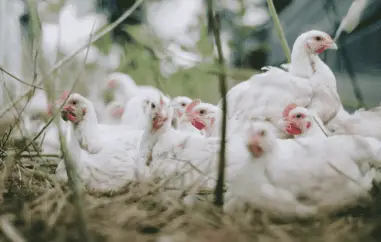The Fascinating World of Chickens: Beyond the Coop
 Chickens, often seen as commonplace farm animals, are much more interesting and complex than many might think. From their surprising cognitive abilities to their crucial role in agriculture and sustainability, these domesticated birds deserve a closer look. This article explores the various facets of chickens that make them so special.
Chickens, often seen as commonplace farm animals, are much more interesting and complex than many might think. From their surprising cognitive abilities to their crucial role in agriculture and sustainability, these domesticated birds deserve a closer look. This article explores the various facets of chickens that make them so special.
History and Domestication
Domestic chickens (Gallus gallus domesticus) are descendants of the red junglefowl, native to Southeast Asia. Around 8,000 years ago, humans began domesticating these birds. Since then, they have been a constant source of food, providing eggs and meat, and have played a vital role in various cultures throughout history.
Intelligence and Behavior
Contrary to the popular belief that chickens are of low intelligence, numerous studies have shown that they possess remarkable cognitive abilities. Chickens can remember up to 100 faces, both of their flock mates and humans. They also demonstrate problem-solving skills and can learn by observation.
A study conducted by the University of Bristol found that chickens can anticipate future events and show self-control, abilities considered signs of advanced intelligence. They also communicate in complex ways, using a variety of sounds to convey different messages. For example, chickens have specific calls for warning their flock about different types of predators, whether they come from the air or the ground.
Social Structure and Emotions
Chickens have a well-defined social structure, often referred to as the "pecking order." This hierarchy helps maintain order within the flock, determining access to resources such as food and nesting sites. The social interactions among chickens are sophisticated, involving cooperation, competition, and even empathy.
Chickens also display a range of emotions. They can experience stress, fear, contentment, and even happiness. When they are treated well, chickens exhibit behaviors that suggest they feel safe and satisfied, such as sunbathing, dust bathing, and vocalizing softly to their chicks.
Role in Sustainable Agriculture
Chickens play a significant role in sustainable agriculture. They are efficient converters of feed into protein, making them an essential part of the food supply. Additionally, their waste serves as an excellent fertilizer, rich in nitrogen, which enhances soil health and productivity.
Backyard chicken keeping has become increasingly popular as people seek to reduce their carbon footprint and promote local food production. By raising chickens at home, individuals can enjoy fresh eggs, manage kitchen waste by feeding scraps to the chickens, and reduce reliance on industrial farming practices.
Cultural Significance
Throughout history, chickens have held cultural and symbolic significance in many societies. In some cultures, they are seen as symbols of fertility and prosperity. They feature prominently in folklore, religious rituals, and even as national symbols. The rooster, for instance, is the national bird of France and symbolizes bravery and vigilance.











































